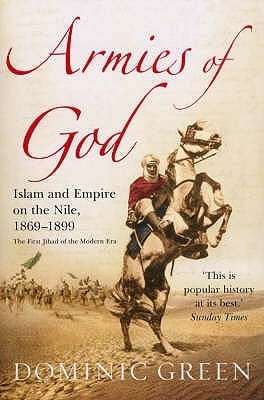
Armies Of God: Islam and Empire on the Nile, 1869-1899
Check my rate
| Main centres: | 1-3 business days |
| Regional areas: | 3-4 business days |
| Remote areas: | 3-5 business days |

| Main centres: | 1-3 business days |
| Regional areas: | 3-4 business days |
| Remote areas: | 3-5 business days |
Published by FisicalBook, 2008, softcover, illustrated, index, 370 pages, condition: as new.
This is the story of what happens when a liberal minded Prime Minister is caught between two sets of fundamentalists, one Islamic, the other Christian. It could be a tale of our time. But this is actually the story of Islam and the Empire on the Nile c. 1869.
In the late 19th century the river Nile became the setting for the first major encounter between the West and Islam in the modern era. In an extraordinary collision between Europeans, Arabs and Africans, three empires rose in the space of thirty years. In the climax of this drama, played out in a remote part of the Sudan, we see the rise of the British Empire to its most glorious heights, but also the seeds of its fall. The personalities are legends: William Gladstone, General Gordon, Winston Churchill and General Kitchener. Yet this is a story also told through the eyes of the outsiders - a missionary, a slave trader, a palace clerk and an ordinary soldier.
Using never before transcribed material from newly translated government papers in Cairo and Khartoum, Green will tell both sides of the story, using his acclaimed skill as a story-teller so that the effect is that of an old photo album whose recurring characters and themes carry a wide sweep of time and events, and tells the story of a time when good intentions became compromised, finally giving way to realpolitik, and how on such changes of attitude empires rise and fall.
The title is, I believe -- like all the best history book titles -- a double-entendre; "Three Empires on the Nile" could be the British, Ottoman and French Empires...or it could be the British Empire, the Mahdi State and the Egyptian Empire, which may rightly be called that insofar as its conquest of Sudan was, in the minds of its leaders, explicit imperial expansion. Corruption and Egypt's dependence on Britain meant that it could never become a real empire -- but one doesn't need to read very deeply to see the similarities between atrocities of every flavor, and the irrelevance of all good intentions in doing anything more than justifying self-interest.
The book's very last line says it all: "Today, the price of a child slave in Khartoum is $35."